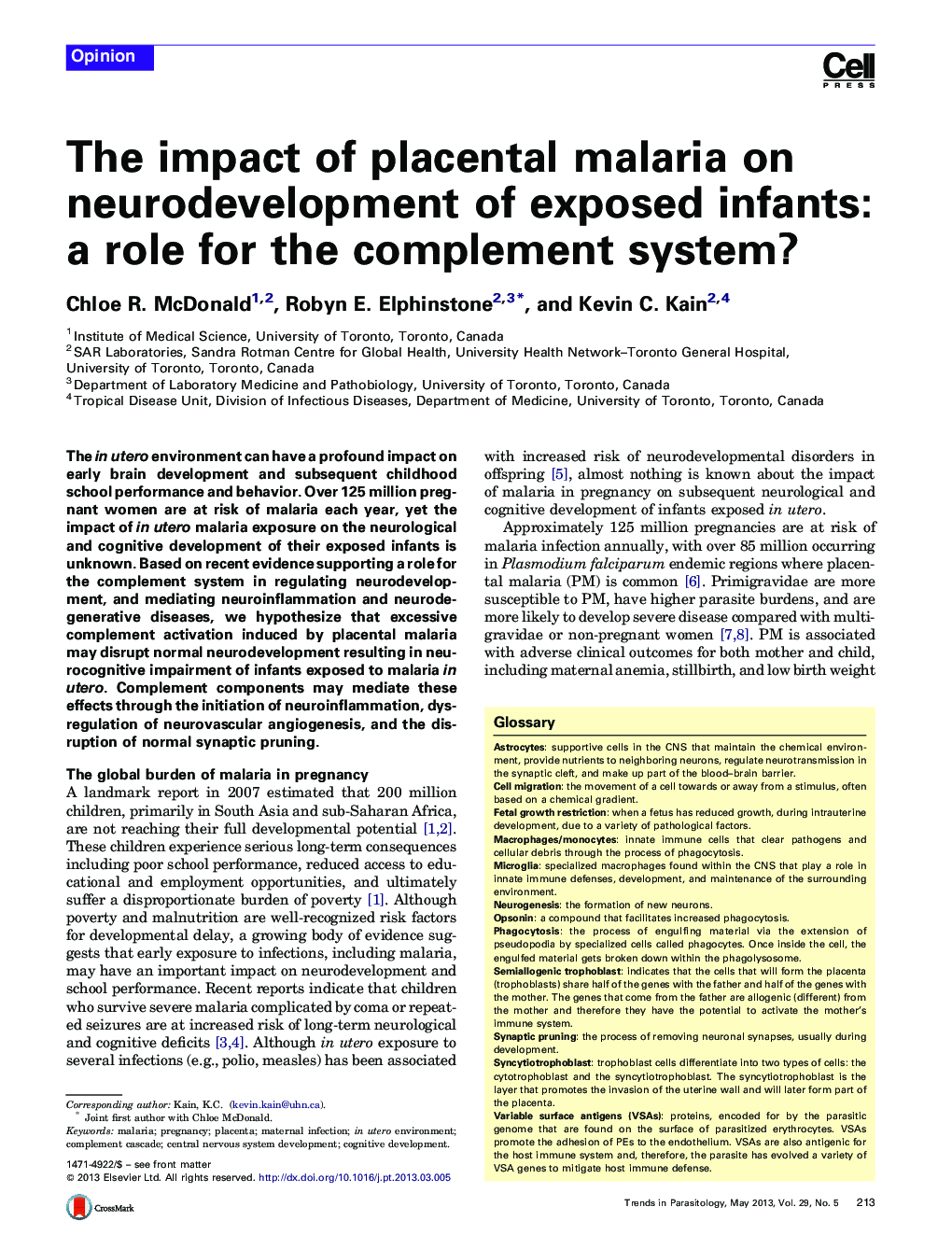| Article ID | Journal | Published Year | Pages | File Type |
|---|---|---|---|---|
| 3423206 | Trends in Parasitology | 2013 | 7 Pages |
►Complement activation is associated with placental malaria (PM) and fetal growth restriction.►Complement plays a role in both neurodevelopment and neurological disease.►PM may disrupt fetal neurodevelopment via excessive complement activation.►PM may cause neurocognitive impairment of infants exposed to malaria in utero.
The in utero environment can have a profound impact on early brain development and subsequent childhood school performance and behavior. Over 125 million pregnant women are at risk of malaria each year, yet the impact of in utero malaria exposure on the neurological and cognitive development of their exposed infants is unknown. Based on recent evidence supporting a role for the complement system in regulating neurodevelopment, and mediating neuroinflammation and neurodegenerative diseases, we hypothesize that excessive complement activation induced by placental malaria may disrupt normal neurodevelopment resulting in neurocognitive impairment of infants exposed to malaria in utero. Complement components may mediate these effects through the initiation of neuroinflammation, dysregulation of neurovascular angiogenesis, and the disruption of normal synaptic pruning.
